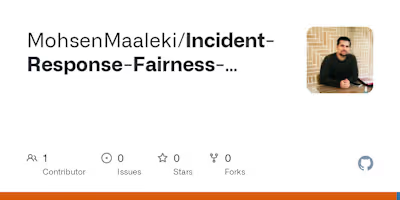Machine Learning for Bone Tumor Diagnostics
Like this project
Posted Aug 10, 2024
This project involved developing and evaluating machine learning models to classify bone tumor patient status into three categories.
Likes
0
Views
9
Machine Learning for Bone Tumor Diagnostics
Overview
This project involved developing and evaluating machine learning models to classify bone tumor patient status into three categories:
No Evidence of Disease (NED)
Alive with Disease (AWD)
Deceased (D)
The models were trained and tested on a dataset from the Memorial Sloan Kettering Cancer Center with 500 samples and 9 features.
Models
The following machine learning classification algorithms were implemented and evaluated:
Gaussian Naive Bayes
Decision Tree
Random Forest
Logistic Regression
Linear SVC
K-Nearest Neighbors (Euclidean and Manhattan distances)
Evaluation
The models were thoroughly evaluated on classification performance metrics:
Accuracy
Precision
Recall
F1 Score
Execution Time
Results
Among all the models, Logistic Regression achieved the highest accuracy of 81% in classifying bone tumor patient status.
Linear SVC also performed well in minimizing false negatives. In contrast, Gaussian Naive Bayes and KNN models showed limitations in distinguishing between patient statuses.
Repository Contents
This repository contains:
Jupyter notebooks for data preprocessing, EDA, and model implementation
Model evaluation results
References
The dataset is from Kaggle: https://www.kaggle.com/datasets/antimoni/bone-tumor






